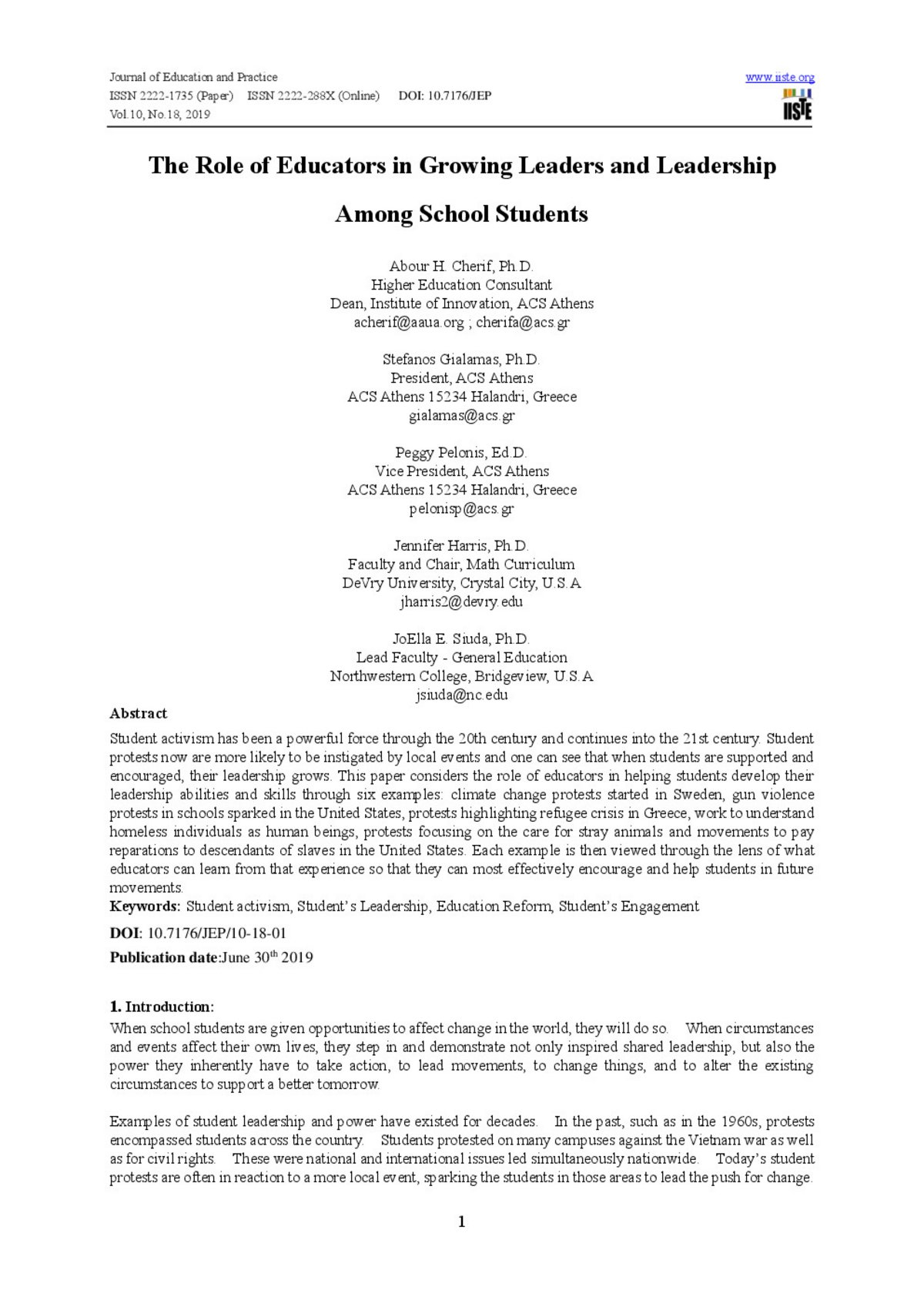Journal of Education and Practice, Vol.10, No.18, 2019
Abour H. Cherif, Dr. Stefanos Gialamas, Dr. Peggy Pelonis, Jennifer Harris, Dr. JoElla E. Siuda
Student activism has been a powerful force through the 20th century and continues into the 21st century. Student protests now are more likely to be instigated by local events and one can see that when students are supported and encouraged, their leadership grows. This paper considers the role of educators in helping students develop their leadership abilities and skills through six examples: climate change protests started in Sweden, gun violence protests in schools sparked in the United States, protests highlighting refugee crisis in Greece, work to understand homeless individuals as human beings, protests focusing on the care for stray animals and movements to pay reparations to descendants of slaves in the United States. Each example is then viewed through the lens of what educators can learn from that experience so that they can most effectively encourage and help students in future movements.
Read below.




